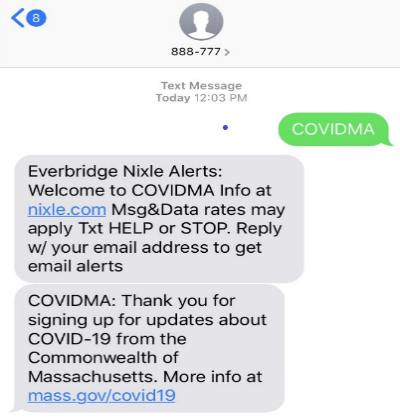Providers Warned
The FCC and FTC demand gateway service providers do their part to stop virus-related scam robocalls or face serious consequences. Learn more.
Consumer Information
The FCC COVID-19 Consumer Guide has information about coronavirus scams and how you can avoid becoming a victim, along with helpful tips on cell phone hygiene and optimizing your home wireless network, and more.
As the battle against the COVID-19 pandemic continues, local health officials in many states are using contact tracing to track cases and prevent larger outbreaks.
Contact tracing is a public health technique used to identify individuals who have had close contact with someone known to have the virus. Because of the urgent need to notify those that may have been exposed, tracers will often use a variety of methods to contact the individual, including calls and text messages.
Scammers have taken note and are impersonating contact tracers in texts and calls, claiming the contacted party has been exposed to COVID-19 and needs to act quickly.
Many states are using text messages for their initial contact tracing outreach. Scam text messages often include links to websites that request Social Security numbers or insurance information. Some even attempt to collect bogus payments for testing. Clicking these links can also download malware onto a mobile device, allowing scammers to access your personal data.
The bottom line: Never click on a link in a text message from an unknown sender.
After the initial text, most legitimate contact tracing work is done over the phone. Legitimate tracers will need to confirm your name, address, and birthday. This is information that they already have – so you won’t need to provide it to them. In addition to bogus texts, identity thieves are also using robocalls and voicemail call-back tracing scams to steal a target’s money, personal details, and insurance information.
Be aware, legitimate contact tracers will not ask for:
- Insurance information
- Bank account information
- Credit card numbers
- Social Security numbers
- or payment
If a caller asks for any of the above, hang up.
Contact tracers will also never reveal the identity of the person who tested positive. They will also be able to provide current local testing locations.
Check with your state’s health department or COVID-19 task force to learn how they are implementing contact tracing and how they plan to contact individuals who have been in contact with someone who has tested positive for COVID-19. Contact tracing methods may vary by state.
File coronavirus scam complaints online with the Federal Trade Commission.

Sample Massachusetts Contact Tracing Text
Examples of State Tracing Programs
New York state, for example maintains a public contact-tracing website urging anyone who receives a call from its outbound contact tracing phone number – "NYS Contact Tracing" (518-387-9993) – to answer.
The site includes notices that contract tracers will never ask for Social Security numbers, private financial information, or credit card numbers, nor will it send a link without proper authentication procedures.
In North Carolina, the states Department of Health and Human Services website provides an FAQ about contact tracing that includes a link to a downloadable flow chart with details about the testing and contact tracing process.
And Massachusetts has launched a COVID-19 Text Message Notification System.
Anyone who texts "COVIDMA" to 888-777 will receive "AlertsMA" notifications with updates from the state about COVID-19. The public awareness campaign for the initiative includes an example of what text notifications look like.
The FCC provides more information on its COVID-19 Scams web page, including audio samples from actual callback scams and examples of text scams. Related information and resources are available from Centers for Disease Control website.